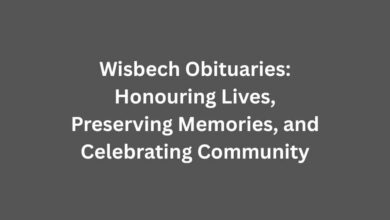Susan Hinchcliffe: Championing Bradford’s Renaissance Through Leadership and Vision

Susan Hinchcliffe has stood at the heart of Bradford’s political and civic transformation for nearly a decade. A leading figure in West Yorkshire, she carries the banner for progressive local governance, ambitious regional development and the renewal of community pride. Understanding her roles, influence and the challenges she faces reveals much about Bradford’s journey and the wider future of local government in the United Kingdom.
Early Life and Political Beginnings
Susan Hinchcliffe grew up in Bradford, developing an intimate understanding of the diverse communities, economic divisions and rich cultural tapestry that define the city. Though details of her childhood remain modest in public record, it has long been clear that her roots in Bradford inform much of her political ethos: social justice, community inclusion and local pride.
Her early political career was built on local engagement. Joining the Labour Party, she took an interest in council affairs and local decision-making, gradually rising through the ranks. Representing the Windhill & Wrose ward, she won respect as someone unafraid to confront the persistent issues in Bradford such as poverty, housing, transport neglect and the need for better services.
Leadership of Bradford Council
In May 2016, Susan Hinchcliffe became Leader of Bradford Council. That moment marked the culmination of years of dedication to local politics and the beginning of a new phase in the council’s leadership.
Vision and Priorities
Upon taking office, she laid out multiple priorities:
-
Addressing inequality: Bradford has long wrestled with stark socioeconomic divides. Hinchcliffe has focused on narrowing gaps in health, income, education and opportunity.
-
Transport and infrastructure: Recognising the importance of connectivity not just within Bradford but across the newly-energised West Yorkshire region, she has sought investment in roads, public transport and the rail network.
-
Culture and identity: Bradford’s rich heritage, diverse population and creative potential are central to Hinchcliffe’s vision. Under her leadership, Bradford won the designation as UK City of Culture 2025. The city’s arts, museums and public spaces are being mobilised as engines of regeneration.
-
Housing and regeneration: From affordable housing to revitalising derelict areas, Hinchcliffe aims to restore Bradford’s built environment in ways that respect its history while stepping boldly into the future.
Achievements and Milestones
Over her time as leader, several key achievements stand out.
-
UK City of Culture 2025
Bradford’s designation for this prestigious title reflects its cultural richness and promise. It promises not only celebrations and events but long-term investment in infrastructure, creative industries and civic pride. -
Devolution and Commuter Connectivity
Susan played a central role in establishing the West Yorkshire Mayoral Devolution Deal. She has championed improved rail connectivity, better bus services and road infrastructure improvements to integrate Bradford more closely with neighbouring towns and cities. -
Economic Growth Initiatives
Under her guidance, Bradford Council has sought to attract inward investment, support small businesses and promote digital innovation. Projects to regenerate town centres, modernise commercial spaces and encourage job creation have become increasingly central. -
Community-Focused Governance
From tackling health inequalities to improving housing, Susan has emphasised policies that engage citizens directly. Initiatives such as community hubs, participatory budgeting and enhanced ward-based engagement bring council decisions closer to those affected. -
Environmental Ambitions
Reflecting the growing concern around climate change, Bradford’s leadership under Hinchcliffe has increasingly emphasised green infrastructure, sustainable transport policy and efforts to reduce carbon emissions.
Role in the West Yorkshire Region
Susan Hinchcliffe’s influence does not stop at Bradford’s boundaries. Her work with the West Yorkshire Combined Authority (WYCA) has shaped regional governance, strategy and investment.
Transport and Regional Strategy
Hinchcliffe has chaired the WYCA Transport Committee, a role putting her at the centre of decisions over public transport and mobility across West Yorkshire. Under her watch:
-
Proposals for better rail links, including work on Northern Powerhouse Rail, have gained momentum.
-
Integration of local bus systems to better connect rural and urban communities has been pursued.
-
She has advocated for transport schemes that work for people on modest incomes, seeking affordability as well as efficiency and frequency.
Devolution and Political Collaboration
Working alongside mayors, neighbouring councils and national government, Susan has been instrumental in turning the promise of devolution into tangible outcomes: more local decision-making power, new funding awards and greater regional coherence in planning and strategy.
Challenges and Criticisms
Despite her achievements, Susan Hinchcliffe’s tenure has been far from easy. Leading Bradford Council comes with complex and sometimes contradictory demands.
Financial Constraints
Local government across the UK has faced funding cuts for more than a decade. Bradford is no exception. Balancing budgets while meeting rising expectations for services, maintenance, social care and housing has been an ongoing struggle.
Social and Economic Inequalities
Bradford remains one of the more deprived areas in West Yorkshire. High levels of child poverty, health inequalities and unemployment pose structural challenges. Policy solutions take time to unfold and outcomes are uneven.
Infrastructure and Transport Delays
Large scale transport projects such as rail upgrades, road improvements and public transport systems are vulnerable to funding delays, planning obstacles and coordination problems between bodies. Although many have been proposed or approved, real-world delivery has sometimes lagged behind enthusiasm.
Cultural Complexity and Community Engagement
Bradford is a richly diverse city. Engaging all communities meaningfully means navigating multiple languages, cultural expectations, historical grievances and trust gaps. While Susan has pushed for inclusive governance, critics sometimes argue more needs to be done on representation, equity or consultation.
Recent Developments and Current Focus
Preparing for 2025 and Beyond
With UK City of Culture 2025 fast approaching, many of Bradford’s initiatives are being aligned around that milestone. Susan Hinchcliffe is centrally involved in ensuring infrastructure, events, community investment and cultural programmes are ready and that the legacy from 2025 benefits every area of Bradford, not just the city centre.
Housing, Planning and Environment
Recent emphasis has been placed on increasing affordable housing stock, regenerating derelict and neglected areas without displacing communities and building green infrastructure such as parks, cleaner air systems, sustainable drainage and biodiversity projects.
Climate and Net Zero Commitments
Bradford Council under her leadership has been more vocal about the climate emergency. Plans are in place for reducing carbon emissions, improving energy efficiency in social housing and encouraging low-carbon transport options.
Innovation and Digital Inclusion
Hinchcliffe has maintained that Bradford needs to succeed not just on physical infrastructure but also in digital access: ensuring that broadband, online public services and skills training serve all communities, especially those currently left behind.
Leadership Style and Values
Collaborative and Pragmatic
Susan Hinchcliffe tends to pair a collaborative approach with practical action. She works across party lines when needed, engages with stakeholders such as businesses, not-for-profits, cultural organisations and residents and seeks solutions that balance long-term vision with immediate improvements.
Transparent Decision-Making
While no leader is free from criticism, especially in complex local governance, she has sought to make decision-making more accessible by publishing reports, engaging in public consultation and ensuring that ward-level concerns are heard in the corridors of power.
Empathy and Social Justice
Her politics are rooted in concern for those who are often overlooked: low income families, ethnic minority groups and people struggling with poor housing or lack of services. Many of her speeches, interviews and policy priorities return again and again to issues of fairness and community wellbeing.
The Path Forward: Opportunities and Risks
Opportunities
-
Legacy of Culture 2025
If Bradford can capitalise on its status as City of Culture, the city can see lasting jobs, new business opportunities, more tourist footfall, improved civic amenities and lifted city-wide confidence. -
Devolution Momentum
Greater local decision-making power and funding could unlock innovation in service delivery, transport, health and education across West Yorkshire. -
Green Growth
Investment in sustainable industries, low-carbon infrastructure and the skills needed for new jobs could help Bradford lead in regional renewables, retrofitting and clean transport. -
Community Resilience
Deepening community engagement, increasing affordable housing and improving health and education outcomes create stronger social cohesion and reduce inequality.
Risks
-
Economic Shocks
Inflation, reductions in national funding or sudden economic downturns could undercut council budgets and stall capital projects. -
Political Uncertainty
Shifts at national level, whether through changes in government priorities, cuts in investment or policy realignments, could reduce support for regional projects or city-specific funding. -
Implementation Gaps
Ambition is one thing; delivery is another. Large infrastructure projects often run over budget or fall behind schedule. Maintaining momentum without excuses will be critical. -
Social Fragmentation
If parts of Bradford feel left behind by regeneration, discontent or distrust might grow, undermining support for council initiatives.
Conclusion
Susan Hinchcliffe represents a model of local leadership attuned both to the lived reality of citizens and the grand sweep of regional ambition. Her tenure as Leader of Bradford Council and her contributions to the West Yorkshire Combined Authority reflect a deep belief in what cities like Bradford can be: inclusive, resilient, culturally vibrant and forward-looking.
The road ahead is demanding but ripe with potential. If the promises of transport infrastructure, cultural renewal, environmental sustainability and social justice are delivered in a way that reaches all of Bradford’s people, the city may well serve as a beacon of how progressive local government can shape a better future.



